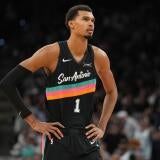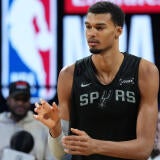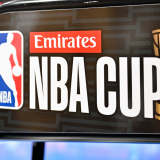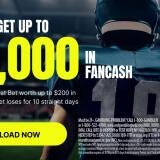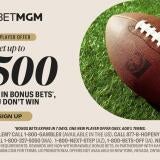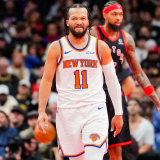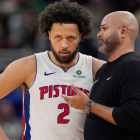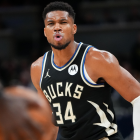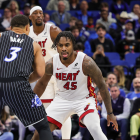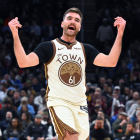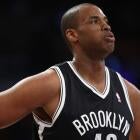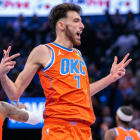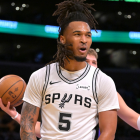
LaMelo Ball trade rumors: Five possible landing spots for Hornets star who is now reportedly open to a deal
Ball is a high-risk, high-reward trade candidate
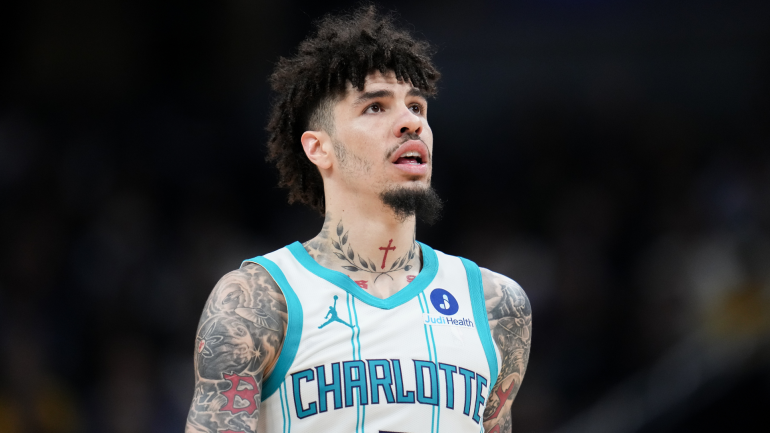
The first month of the 2025-26 NBA season has almost felt like a practice run for the LaMelo Ball trade sweepstakes, which seemingly began Thursday when Yahoo reported that Charlotte's star point guard is now open to a deal (Ball, for what it's worth, responded on social media with a clown emoji). Ja Morant's tantrum against the Memphis coaching staff reminded us all that supply sorely outpaces demand on the point guard market. Anthony Davis' future in Dallas became uncertain the moment Nico Harrison was fired, but the seemingly tepid response to his potential availability is a testament to how scared potential traders are of meaningful health risks. Sacramento's slow start drew predictable reporting about the lack of interest in Zach LaVine thanks to his contract.
These are all concerns that apply to Ball, at least on some level. He plays the league's most crowded position, and not especially often either, as he has appeared in just 114 games since the beginning of the 2022-23 campaign. He has three fully guaranteed seasons left on a max rookie extension after this year, though thankfully he failed to earn eligibility for a Rose Rule bump, so his deal started at a more manageable 25% of the cap. He's never reached the playoffs. He's never played defense. His efficiency is significantly down this season. He checks every single box on the high-risk trade target chart.
And yet ... he probably will, or at least should, draw more interest on the trade market than the others. He's still only 24. He's never played for a stable and functioning NBA organization. James Borrego made lemonade with what Michael Jordan gave him and by the time the team was sold to an ownership group seemingly ready to invest more in team-wide infrastructure, the roster had degraded to the point where it had no choice but to tank. How many of those absences would have been avoided if Ball actually had something to play for?
You could ask a version of that question for just about every concern Ball raises. He's never defended in the NBA, but that doesn't mean he lacks tools. He's a big, athletic guard with a lot of bad habits that a strong organization might be able to teach out of him. Does he take circus shots out of a misplaced sense of showmanship, or does he do it because his underwhelming supporting cast makes it harder for him to find more traditional looks? Is he a carnival act or a superstar? Can he be both?
The answer is maybe, but we'll probably never know in Charlotte. This is a supremely talented 24-year-old basketball player. There's stardom in here somewhere for a team capable of finding it. So, with apologies to many of the bottom-dwellers that tend to pop up in trade talks like this (we're looking at you, Sacramento), let's try to find Ball a team in which he'll really have a fighting chance at maximizing that prodigious talent. Here are five trade destinations that make some sense.
Los Angeles Clippers
There's something poetic about sending the Chino Hills star back home after the other Los Angeles team traded his brother just two years into his career. The Clippers are always looking for ways of one-upping the Lakers and Charlotte might have one waiting for them on a silver platter. More pressingly, the Clippers are an exceedingly old team with no clear future. Ball is at least a direction. He's someone who can fill an arena for a few years and maybe help you recruit year next big fish. Ty Lue is perfectly capable of holding stars accountable. If you can get away with calling out LeBron James, you can probably nudge Ball away from his worst on-court impulses.
The short-term basketball fit is a bit more of a question. The Clippers badly need an offensive spark after shipping out Norman Powell and signing Bradley Beal, who's already out for the year. Ball's specific gifts could fill in some blanks for a roster that lacks creativity beyond James Harden and athleticism really anywhere. Only the Nets are scoring fewer fast-break points per game than the Clippers, and Brooklyn is trying to lose. Ball addresses that weakness at least, though pairing him and Harden more or less ends any hopes of recapturing last year's defensive excellence.
There are real cost questions on both sides. The Clippers can trade two first-round picks (2030 and 2032) along with a first-round swap (2031). Is that enough to convince the Hornets to part with someone they've treated as a franchise player? Conversely, are the Clippers prepared to bet their few remaining assets on Ball, especially when the looming threat of the Kawhi Leonard investigation could strip them of even more draft picks down the line? Get this trade right and you have a future. You have Ball, Ivica Zubac and the cap space to improve around him. Get it wrong and it might set you back a decade. It's up to them to decide if the risk outweighs the reward.
Miami Heat
I know, I know, we do this for every reputation rehabilitation candidate, but we do it for a reason. None of that Charlotte nonsense would fly in Miami. If we assume Ball needs structure, this is where he'll find it. It's a far more appealing roster as well. The Heat are loaded with bigger defenders and the emergence of Davion Mitchell ensures that Ball could almost always be hidden on weaker matchups. The ultra-fast, pass-heavy offense the Heat installed this season has started to fade a bit. Some of that is some early 3-point variance starting to turn. Some of it is the lack of star power. There's no real engine here, it's the system. Tyler Herro hasn't even played yet.
That's the core question here. Would Miami rather have Herro or Ball? It doesn't make sense to build around two defenders that vulnerable and their offensive fit is messy as well. You're not getting nearly enough rim pressure out of those two given the money they'd cost. Inertia tends to favor the incumbent, but the Heat are bolder than most. They've been big-game hunting for decades, and they notably didn't give Herro an extension over the summer. If they're at all hesitant on that front, some sort of Ball trade is a convenient way out. They'd likely have to include draft capital, but the Heat are facing the same existential questions the Clippers are. If they think Ball can be a franchise player, he's worth the risk.
Houston Rockets
The actual trade cost for Houston would be pretty trivial. The Rockets can match money easily enough with Fred VanVleet (provided he waives his right to veto a deal), Dorian Finney-Smith and a third, smaller salary. They're so loaded with draft picks that shipping out a couple of first-rounders is easy enough as well. The Rockets have the chips to trade for almost anyone. That's why they won't trade for just anyone.
Do you want to go all-in on LaMelo Ball now, when you already look like a championship contender and can save your bullets for someone safer in a few years? How easily could Ball integrate into the existing structure? He doesn't exactly fit in a defense-first culture unless the hope is that he'd adapt on a team (and for a coach) that demands it. He's fortunately, at least theoretically, relatively low-maintenance as offensive stars go. Getting him doesn't necessarily mean taking the ball away from Alperen Sengun or Kevin Durant. Really, taking the ball-handling burden off of Amen Thompson's shoulders would probably be helpful.
It's probably a no for Houston at this stage. The idea of trading for Ball would be to add shooting and playmaking that they're getting from Reed Sheppard in smaller doses. The upgrade probably isn't big enough to justify the cost. But Houston is so asset-rich and depending so much on such young players that the Rockets will inevitably pop up whenever any star guard hits the market. If the price is low enough, it's not crazy.
Dallas Mavericks
The broader organization in Dallas is, obviously, a mess. There are, however, a few factors that make Dallas appealing in spite of that. There are already two Hall of Fame point guards in the building between Jason Kidd and Kyrie Irving. Both can be pretty mercurial, but both are by and large revered among players. Cooper Flagg is the ideal long-term, on-court partner for Ball. Flagg can do just about everything except run an offense, as Dallas' ill-fated point guard experiment early in the season showed. Ball would make his life far easier on offense. Flagg, in turn, would do all of the little things Ball has never really done.
Dallas is still fairly thin on first-rounders. At present, they can only offer their 2031 pick and swap rights in 2032 and, considering they don't control their picks between 2027 and 2030, they'd effectively be betting the Flagg era on Ball and their 2026 first-round pick, whoever it turns out to be. The caveat here is that the Mavericks are ultimately expected to trade Anthony Davis. If they refill their coffers that way, they might have enough to take a run at Ball without bankrupting their future. Besides, with Flagg on a rookie deal, the Mavericks could justify fitting Ball's max deal onto their balance sheet more easily than most suitors. After all, his contract expires right as Flagg would start his rookie extension, so if Ball doesn't work out, Dallas would never have to worry about paying him and Flagg max money at the same time.
Portland Trail Blazers
Hey, speaking of teams with Hall of Fame guards in the building, Damian Lillard and Jrue Holiday would probably be good influences on Ball. The Blazers want to win now, but Scoot Henderson, who Charlotte considered drafting at No. 2 in 2023, hasn't played yet this season. His first two years have done little to show that he can be the offensive centerpiece they'll need for the long haul, and now that they're trying to be competitive immediately, it's going to be harder to justify the sort of minutes he'll need to develop properly.
Charlotte can obviously offer those minutes, and Henderson's speed would fit quite well next to rising star Kon Knueppel, who looks like one of the best shooters in the NBA already. So how about a swap of young guards? Charlotte would get Henderson and Jerami Grant as matching salary. Portland would push even more chips into the win-now bucket by turning Henderson into a 24-year-old who has actually made an All-Star team in Ball. The stellar defense that carried Portland down the stretch last season hasn't shown up yet this year, but if you assume it comes around, the Blazers largely have that end of the floor solved. Offense is the long-term question, and Ball could be their answer.









